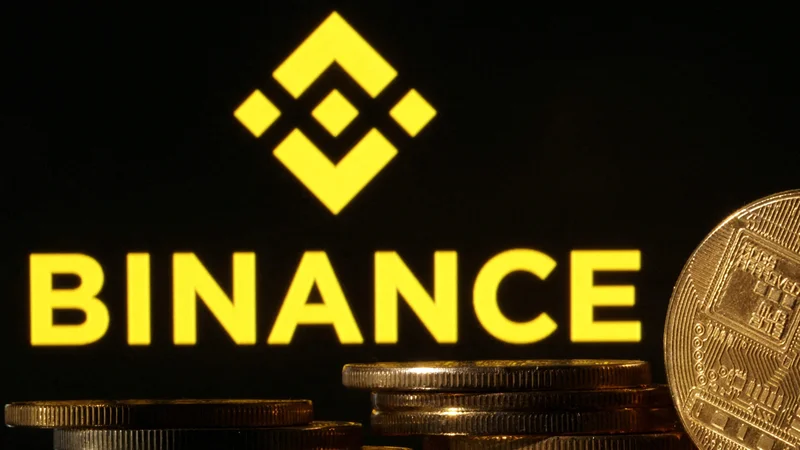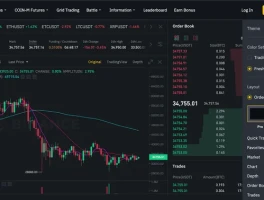When I saw the headline flash across my screen—Trump pardons Binance founder Changpeng Zhao - PBS—I honestly just sat back in my chair, speechless. It wasn't the political shock that got me. It was the sheer, tectonic significance of the moment. This wasn't just a legal maneuver or a political favor. This was a signal flare fired from the highest levels of the old power structure, illuminating a profound and irreversible truth: the world that crypto built is no longer a fringe experiment. It's the new reality.
For months, the narrative around Changpeng Zhao, or CZ, has been a cautionary tale. The brilliant, driven founder of the world's largest crypto exchange Binance, a man who architected a global financial network from scratch, was brought low. He stood in a courtroom, humbled, and admitted his failure. He pleaded guilty to not building a robust enough anti-money-laundering program. And let's be clear: that failure had real-world consequences. It allowed criminals to move illicit funds, a stain on the industry and a genuine harm that can't be ignored. He took responsibility, accepted his sentence, and the system, it seemed, had made its point: play by our rules, or we will break you.
But the pardon changes the entire story. It forces us to ask a much deeper, more important question. What was the nature of his "crime"? This wasn't a Bernie Madoff-style scheme, built on a foundation of lies with a clear list of victims whose life savings vanished. This was a sin of omission, not commission. CZ built a financial superhighway at a speed the world has never seen, a system so vast and efficient it outpaced the regulators trying to map it. His failure was not building enough guardrails and police checkpoints along the way.
It’s like the great railroad barons of the 19th century. They laid thousands of miles of steel track, connecting a continent and birthing a new economic era. In their haste, did they follow every land ordinance? Did they build perfect fences to stop every cattle rustler from using their lines? Of course not. They were building the future, and the rulebook for that future hadn't even been written yet. Do you condemn the man who built the railroad because some outlaws exploited it, or do you recognize that the railroad itself is now an indispensable part of the nation's fabric?
The System Acknowledges the Code
This pardon isn't happening in a vacuum. It’s a direct consequence of the new, undeniable entanglement between the political establishment and the decentralized world. The White House press secretary's statement, claiming the original prosecution was a politically motivated attack on the crypto industry, is just the public-facing script. The real story, as always, is in the ledger.
Look at the connections. Donald Trump and his sons launched a crypto venture, World Liberty Financial, which reportedly netted the former president over $57 million last year. That venture has its own stablecoin, USD1. And now, an investment fund from the UAE is planning to use $2 billion worth of that very stablecoin to purchase a stake in Binance. The lines aren't just blurry anymore; they've been completely erased. This is a level of vertical integration that is just staggering—it means the political, financial, and technological power structures are merging faster than we can even comprehend.

This is the kind of breakthrough that reminds me why I got into this field in the first place. It’s messy, it’s chaotic, and it’s driven by human self-interest, but it’s also proof of an unstoppable paradigm shift. When a political figure of Trump's magnitude sees more value in embracing the system CZ built than in punishing him for its imperfections, it's the ultimate validation. It's a pragmatic, if cynical, admission that the power of this new financial architecture is too great to fight. The war isn't about shutting down crypto anymore; it's about who gets to control the on-ramps.
So, what does this mean for the thousands of other builders in the Web3 space, the ones coding the next generation of decentralized applications or building out networks like decentralized GPU Theta Networks? Does this signal a ceasefire in the regulatory wars? Or does it simply mean that to survive, you need the protection of a powerful political patron?
A New Set of Rules
The pardon of CZ feels like a system correcting itself, albeit in a clumsy and controversial way. The initial prosecution was the old world trying to apply its 20th-century rulebook to a 21st-century phenomenon. It was an attempt to make an example of a builder, to instill fear. But the pardon is a tacit admission that this approach has failed. The technology is too embedded, the capital too significant, and the potential too vast to simply legislate out of existence.
You can't imprison an idea, and decentralized finance is one of the most powerful ideas of our time. It’s the notion that we can create systems for value exchange that are more open, transparent, and accessible than anything the legacy financial world ever offered. CZ was one of the chief architects of the first phase of that idea. His platform, Binance US included, brought millions of people into this new economy, letting them do everything from speculate on a meme coin to buy XRP Binance.com as a potential bet on the future of cross-border payments.
The pardon forces us to re-evaluate our definition of justice in this new frontier. Is it just to hold a founder criminally liable for the misuse of a global, open platform by anonymous users, especially when the platform itself wasn't designed to defraud? Or is the greater justice in recognizing that building these monumental, world-changing systems will inevitably be a messy process? I don't have the perfect answer, and frankly, I don't think anyone does. But this event forces us to have the conversation. It moves the debate from "Is crypto legitimate?" to "How do we integrate crypto's power responsibly?" And that, right there, is a monumental leap forward.
The Builder's Pardon
Ultimately, this isn't about Donald Trump or Changpeng Zhao. It's about a fundamental recognition of who holds power in this new century. The builders—the coders, the founders, the architects of our digital future—are creating systems so essential that the old world can no longer simply punish them. It must now bargain with them. This pardon, for all its political messiness, is a victory for every single person building in the decentralized space. It's a clear, unambiguous signal that what you are creating is no longer a curiosity on the fringe. It is the foundation of what comes next. The future, it seems, just got forgiven for the sins of its creation. And now, the real work can continue.


